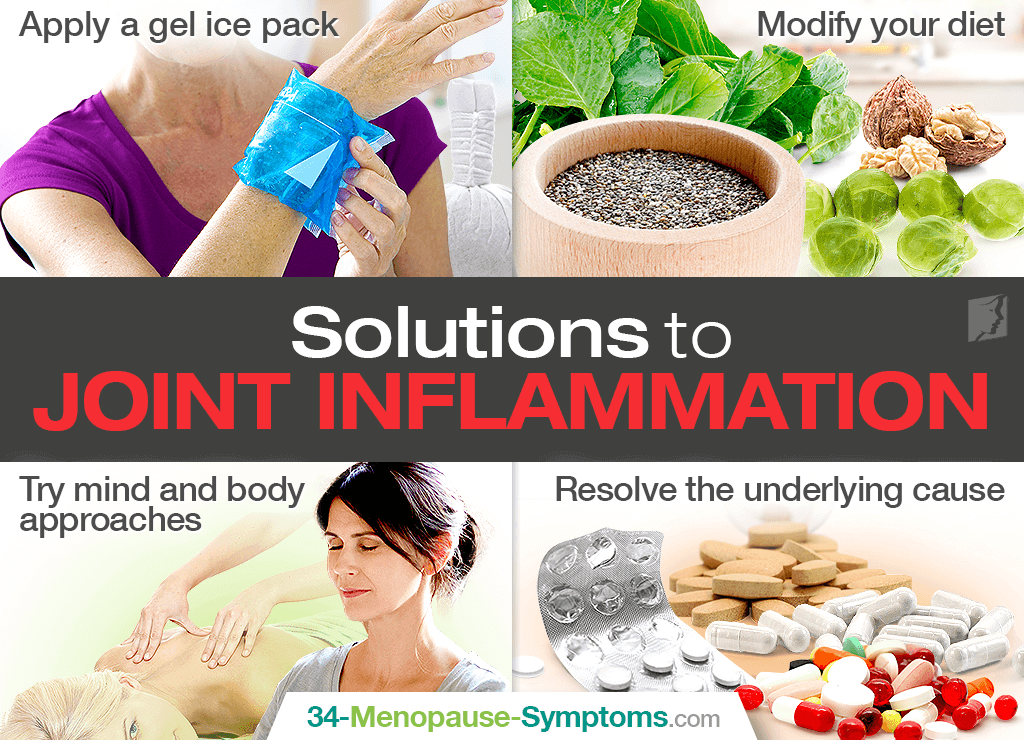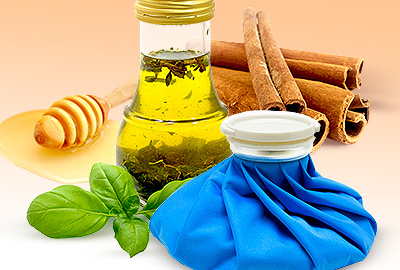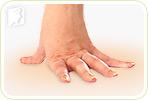Sudden flare-ups of joint pain and inflammation can leave menopausal women distressed and aching throughout their days, wondering why it's even occurring and what they can do for relief.
Continue reading to learn more about the causes of joint inflammation as well as management and treatment options so that you can go back to moving pain-free.
Joint Inflammation Causes

Hormonal causes
Menopause marks a time of drastic hormonal fluctuations in women's lives as the ovaries begin to wind down hormone production of estrogen and progesterone.
Estrogen carries an instrumental role in bone, muscle, and cartilage health of women. As such, its low levels can compromise joint health and lead to inflammation and pain in those transitioning into or out of menopause.
Other causes
Other causes of joint inflammation not related to hormones include tendinitis, cartilage damage, arthritis, fibromyalgia, hypothyroidism, sprains, and more.
Solutions to Joint Pain and Inflammation

Managing inflammatory joint pain can be easily done with a few lifestyle changes.
For instance, apply a gel ice pack or bag of frozen vegetables wrapped in a thin towel to the affected joints so as to relieve any inflammation. Apply it for 15 to 20 minutes every few hours or as seen necessary.
Also, modify your diet to include omega-3 fatty acids, which have been scientifically shown to reduce inflammation throughout the body. Foods high in omega-3s include Brussels sprouts; green leafy vegetables like kale, spinach, and salad greens; flaxseeds; chia seeds; and walnuts.
Furthermore, try mind and body approaches that help improve your ability to cope with any discomforts. They include acupuncture, massage, mindfulness meditation, relaxation techniques, and exercises that improve strength and flexibility, like yoga and tai chi.
However, the best relief from joint inflammation during menopause comes when you resolve the underlying cause of hormonal imbalance through joint pain treatments .
Do so by implementing aforementioned lifestyle changes alongside alternative medicine options of phytoestrogenic herbal supplements or hormone-regulating supplements.
Phytoestrogenic herbal supplements - like black cohosh, St. John's wort, red clover, etc. - contain plant-based, estrogen-like compounds that act in the body as natural estrogens do, thus relieving joint pain and inflammation as well as other symptoms of menopause.
Likewise, hormone-regulating supplements, like Macafem, nourish the body's endocrine and pituitary glands, thus encouraging natural hormone production to bring about hormonal equilibrium. Because they do not introduce outside hormones into the body, they are safer for long-term use.
Key Takeaways
Sudden onset bouts of joint inflammation due to drastic hormonal fluctuations throughout the menopausal transition do not have to leave you contained for the day. Though you can manage the condition through icing, diet modification, and healthy habits, choose to treat its underlying cause of hormonal imbalance naturally with lifestyle adjustments and the use of alternative medicine. With proper initiative, joint pain and inflammation does not have to haunt your days for much longer.
Sources
- Arthritis Foundation. (n.d.). The Benefits of Omega-3 Fatty Acids for Arthritis. Retrieved January 29, 2019, from http://blog.arthritis.org/living-with-arthritis/omega-3-fatty-acids-arthritis/
- Chlebowski, R.T. et al. (2013). Estrogen Alone and Joint Symptoms in the Women's Health Initiative Randomized Trial. Menopause, 20(6). doi: 10.1097/GME.0b013e31828392c4
- Mayo Clinic. (2019). Joint pain: Causes. Retrieved January 29, 2019, from https://www.mayoclinic.org/symptoms/joint-pain/basics/causes/sym-20050668
- National Center for Complementary and Integrative Health. (2019). Rheumatoid Arthritis: In Depth. Retrieved January 29, 2019, from https://nccih.nih.gov/health/RA/getthefacts.htm
- NHS. (2016). Joint pain. Retrieved January 29, 2019, from https://www.nhs.uk/conditions/joint-pain/




